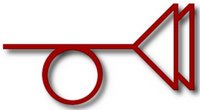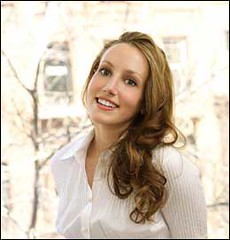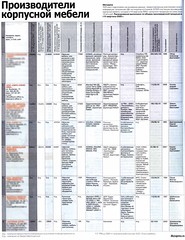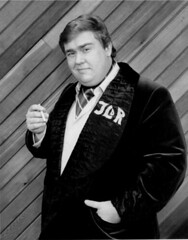 It is an odd fact of human nature that some people will not plunk down $10 to see a 90-minute movie without the security blanket of overwhelming critical praise, yet they will gladly pay $25 for a book that could torture them for weeks without bothering to consider if the thing is any damn good.
It is an odd fact of human nature that some people will not plunk down $10 to see a 90-minute movie without the security blanket of overwhelming critical praise, yet they will gladly pay $25 for a book that could torture them for weeks without bothering to consider if the thing is any damn good.
I say this following the release of the New York Times' "100 Most Notable Books" of 2006. I do not come to bury the Times' list, but not to praise it, either, since I have read a grand total of zero selections.
It's impossible to critique something you haven't read. Wife has actually read one of the "100 Most Notable" -- David Mitchell's "Black Swan Green" -- making the Bookfraud household a stellar 1 for 100. For those of you keeping score at home, that's a batting average of .010, which happens to match the on-base percentage of the Cubs' new $136 million leadoff man.
In further research, I took a scientific poll using the list to see what readers were "likely" to read or what they were "interested" in reading. According to my results, poll takers selected 32 percent of the titles as something they might read, not a bad number when you consider the number of books.
Well, OK. Wife selected 17, and I added on another 15. But really. The fiction section didn't make me want to run to the book store. Am I going to read yet another collection by Joyce Carol Oates? Or worthies like Jennifer Egan, Allegra Goodman, Cormac McCarthy, Colson Whitehead or Alice McDermott? Nope, primarily because there's so much else to read (which is a bad thing, since modern fiction is no longer widely read).
Or even m I really going to read Marisha Pessl's "Special Topics in Calamity Physics," written by a gorgeous 20-something wunderkind, who is also an actress and surely could win the Nobel Prize in Chemistry if she just put her mind to it?
Pessl: proof that life is not fair
I can't even say that I had any special enthusiasm for Thomas Pynchon's "Against the Day," which, by all accounts, sounds like a "Gravity's Rainbow" retread. (There was a time when I inhaled everything the fellow wrote, seeking a higher understanding of humanity through the sheer density of his work, but I would ultimately have an easier time getting Pynchon to do shots of Jagermeister with me than comprehending his work.)
There's plenty of novels, story collections, and the odd book of poetry thrown in. There's the usual suspects (Updike, Roth, Oates) along with some lesser-known but talented names. Throw in a few foreign writers, and you got a list of fiction.
The non-fiction leaves me cold. Bob Woodward's "State of Denial" chronicles in detail what I already knew: the Bush White House is full of authoritarian nitwits, starting at the top.
There's a book on Reconstruction, a couple on Hurricane Katrina, the usual memoir and celebrity (Katherine Hepburn, Ava Gardner) biographies. There's science books, sports books, and quirky and intellectual histories (Spinoza Vs. Lebnitz, for instance).
I haven't gone back and looked at last year's list, but I would bet the contours are the same: 50 percent fiction, 50 percent non-fiction; 15 percent short stories, 12 percent books on food, 38 percent novels, 3 percent on intellectual history, etc.
But just about every book on the list has one thing in common: major houses published them.
You won't find an unheard-of masterpiece in the lot, because the Times reviewed all of the books, and just about the only way a book can get reviewed is if a Random House or Knopf publishes it.
It also leads me to wonder what, precisely, "notable" means. I didn't see a Nora Roberts, Nelson DeMille or chick lit book (though Stephen King's "Lisey's Story" made the cut), though a single novel from either Roberts or DeMille probably outsells all the rest of the authors put together. I didn't see any "Sundays With Syd" or "The Eight Addictions of Highly Stupid Businesspeople," either. 
My kinda list
It would be easy to chalk this up to intellectual elitism; after all, even if a book sells 23 copies, that doesn't mean it isn't notable. If you want to be notable, you have to get reviewed by the New York Times; but to be reviewed by the New York Times, you have to be notable.
Thoughts? Comments? Can you get me Marisha Pessl's phone number?
Monday, November 27, 2006
Notable, but Not Necessarily Good
Subscribe to:
Comment Feed (RSS)


|